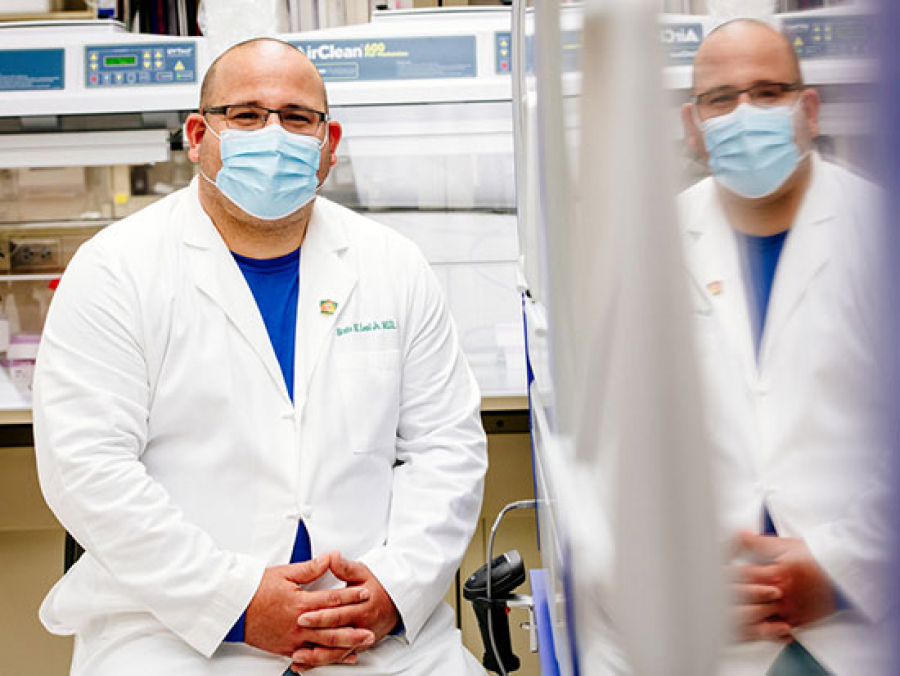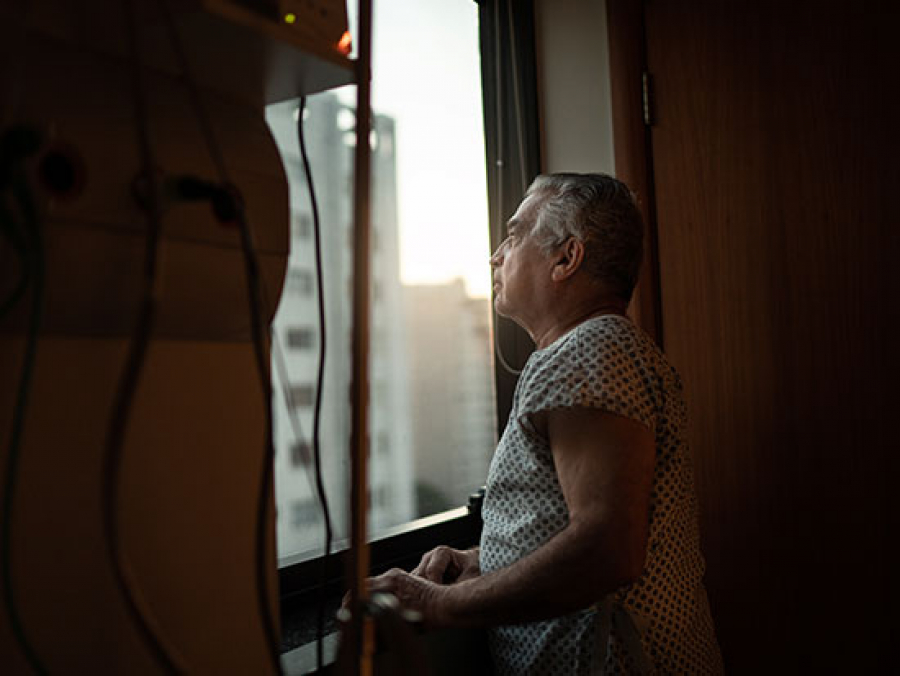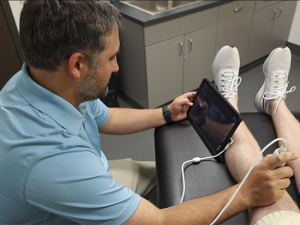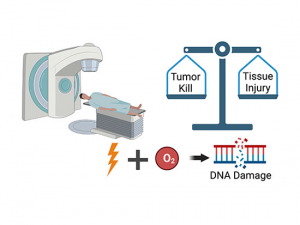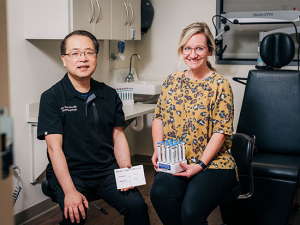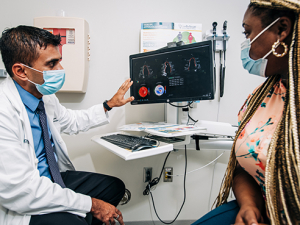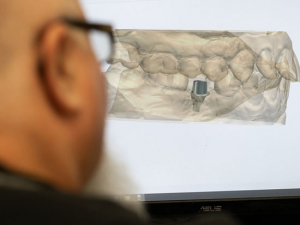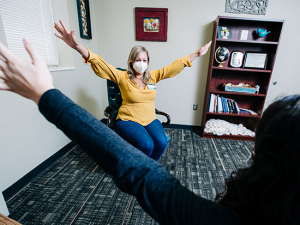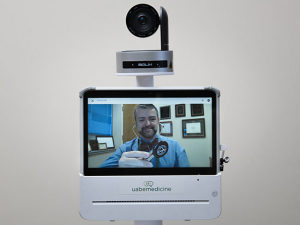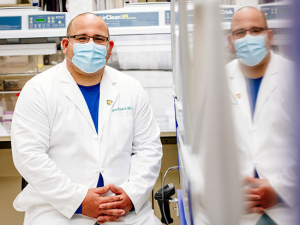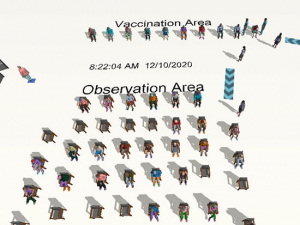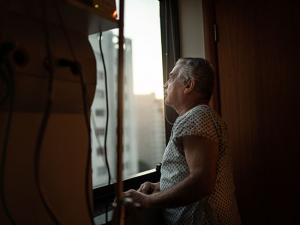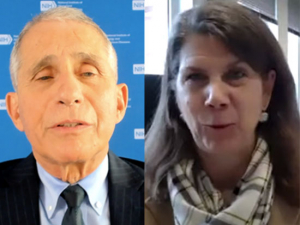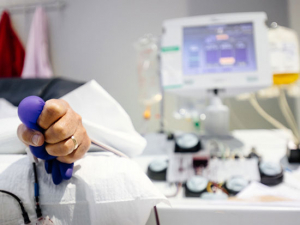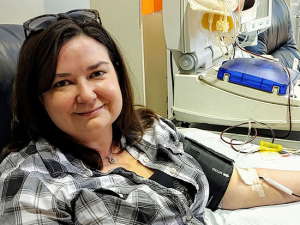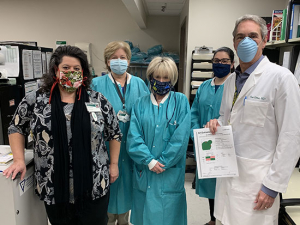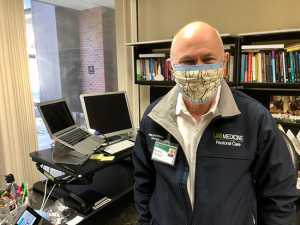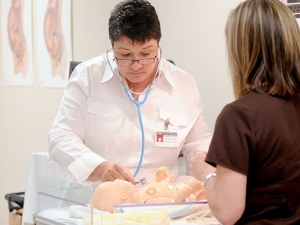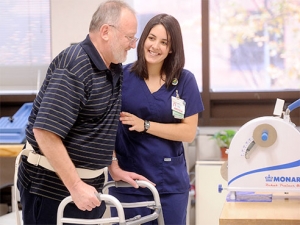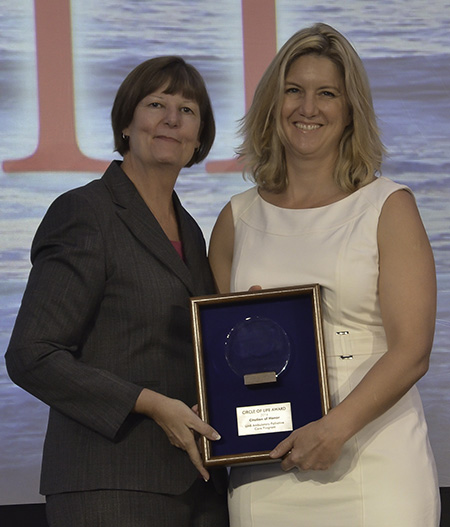 Elizabeth Kvale, M.D., director of the UAB Supportive Care and Survivorship outpatient clinic, and Mary Starmann-Harrison, member of AHA’s Executive Committee, at the American Hospital Association/Health Forum Leadership Summit in San Diego.Living with a life-threatening illness is difficult, and balancing health care priorities becomes increasingly challenging. UAB’s Center for Palliative and Supportive Care is bridging the gap between doctor and patient through its ambulatory program.
Elizabeth Kvale, M.D., director of the UAB Supportive Care and Survivorship outpatient clinic, and Mary Starmann-Harrison, member of AHA’s Executive Committee, at the American Hospital Association/Health Forum Leadership Summit in San Diego.Living with a life-threatening illness is difficult, and balancing health care priorities becomes increasingly challenging. UAB’s Center for Palliative and Supportive Care is bridging the gap between doctor and patient through its ambulatory program.
“The ambulatory care program is an evolution of what we’ve been doing,” said Elizabeth Kvale, M.D., associate professor and director of the Supportive Care and Survivorship outpatient clinic. “We’ve had a clinic for a number of years, but have been challenged to develop strategies that better meet the needs of our most seriously ill patients. While a strong interdisciplinary clinic remains the center of our model, we need to develop approaches to provide care to our patients where they live.”
Palliative care is the medical specialty focused on relief of the pain, stress and other debilitating symptoms of serious illness. Palliative care can be provided at any time during a person’s illness, even from the time of diagnosis, Kvale said. Unlike hospice care, which is focused on terminally ill patients, palliative care is not dependent on prognosis and can coincide with treatment.
UAB maintains an inpatient program for hospitalized adults, children and veterans, but Kvale said most patients dealing with serious illnesses spend more time at home. To reach them, the center expanded access to community settings through innovative models of health care delivery, including lay cancer navigators and telemedicine.
The American Hospital Association honored the center for its work with the Circle of Life Citation of Honor. This is the second time the center has received the award, which recognizes programs that demonstrate exceptional quality in palliative and end-of-life care.
“UAB is unique among palliative care programs because we’ve had a palliative care clinic for more than 10 years; but the reason we received the award is because we are actively looking at new models for providing ambulatory palliative care,” Kvale said. “We really are focused on population health management for the sickest individuals in our society.”
The center has expanded its ambulatory program to include partnerships with the Comprehensive Cancer Center and community support teams, including patients’ family and friends.
| "UAB has long been recognized as one of the leading palliative care programs in the country, and this award reinforces that and maintains our standing among the top tier of palliative care programs. It also establishes us as the national leader in ambulatory palliative care." |
“One of the reasons we were recognized with this honor is because of the novel program to provide telemedicine support Dr. Marie Bakitas has developed,” Kvale said. Bakitas, D.N.Sc., is the center’s associate director and a professor of nursing.
Through a series of calls to patients and family members, the center staff help them work through supportive materials and learn to identify and acquire the resources they need. Kvale said it is improving patients’ symptoms and quality of life.
“The calls help to train them to be empowered to guide their own health-care decision-making and to identify their values and priorities. They also learn to advocate for themselves or for their loved ones, so it’s very proactive.”
The center also won the Citation of Honor award in 2008 for its collaboration with the Veteran’s Affairs Medical Center. Kvale said UAB’s culture supports unique collaborations, which is why she believes the ambulatory program is successful.
“UAB has long been recognized as one of the leading palliative care programs in the country, and this award reinforces that and maintains our standing among the top tier of palliative care programs,” Kvale said. “It also establishes us as the national leader in ambulatory palliative care.”
The 2014 awards are supported, in part, by the California HealthCare Foundation and the Cambia Health Foundation. Major sponsors are the American Hospital Association, the Catholic Health Association, the National Hospice and Palliative Care Organization and the National Hospice Foundation.
